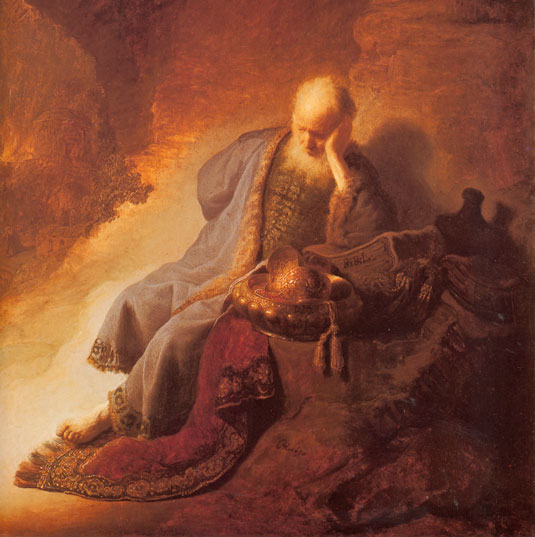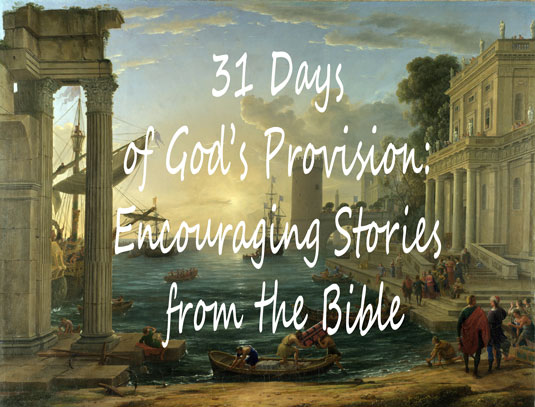 After the death of King Solomon, the tribes of Israel were fragmented into the northern kingdom (called Israel) and the southern kingdom (called Judah). Mostly bad kings reigned in Judah, but they also had a few good kings. Israel on the other hand had nothing but bad kings and as a result, the northern tribes were steeped in idolatry. After many years of disobedience, God allows the northern kingdom to go into cavity under the Assyrians.
After the death of King Solomon, the tribes of Israel were fragmented into the northern kingdom (called Israel) and the southern kingdom (called Judah). Mostly bad kings reigned in Judah, but they also had a few good kings. Israel on the other hand had nothing but bad kings and as a result, the northern tribes were steeped in idolatry. After many years of disobedience, God allows the northern kingdom to go into cavity under the Assyrians.
At the time of our story, the northern tribes are in exile, God speaks to the southern tribes through the prophet Isaiah, and Hezekiah is the king of Judah. For the record, Hezekiah is described as a good king, for he trusted in God, and always tried to do what was right. After the Assyrians threaten Jerusalem and send an insulting letter to Hezekiah, ridiculing the God of Israel, he takes the matter to the Lord and God himself wipes out a large portion of the Assyrian army.
God continues to bless Hezekiah during his reign and grants him success in his kingdom, including a masterful engineering feat of water diversion through an underground tunnel.
Hezekiah had very great wealth and honor, and he made treasuries for his silver and gold and for his precious stones, spices, shields and all kinds of valuables. He also made buildings to store the harvest of grain, new wine and olive oil; and he made stalls for various kinds of cattle, and pens for the flocks. He built villages and acquired great numbers of flocks and herds, for God had given him very great riches.
It was Hezekiah who blocked the upper outlet of the Gihon spring and channeled the water down to the west side of the City of David. He succeeded in everything he undertook. 2 Chronicles 32:27-30, NIV
When our story opens, Hezekiah is working on city projects, and keeping a watchful eye on the Assyrians who still pose a threat to Jerusalem. One day Hezekiah develops some sort of a boil and becomes ill. Eventually, his condition worsens, and Hezekiah is wondering if he will survive. The prophet Isaiah shows up to bring him the bad news.
In those days Hezekiah became ill and was at the point of death. The prophet Isaiah son of Amoz went to him and said, “This is what the Lord says: Put your house in order, because you are going to die; you will not recover.” 2 Kings 20:1, NIV
It doesn’t sound like Isaiah had much of a bedside manner. Hezekiah is understandably upset, and he pours out his heart to the Lord.
Hezekiah turned his face to the wall and prayed to the Lord, “Remember, Lord, how I have walked before you faithfully and with wholehearted devotion and have done what is good in your eyes.” And Hezekiah wept bitterly. 2 Kings 20:2-3, NIV
After delivering his message, Isaiah is on his way out, when the Lord interrupts his progress with new instructions.
Before Isaiah had left the middle court, the word of the Lord came to him: “Go back and tell Hezekiah, the ruler of my people, ‘This is what the Lord, the God of your father David, says: I have heard your prayer and seen your tears; I will heal you. On the third day from now you will go up to the temple of the Lord. I will add fifteen years to your life. And I will deliver you and this city from the hand of the king of Assyria. I will defend this city for my sake and for the sake of my servant David.’” 2 Kings 20:4-6, NIV
Isaiah prepares a poultice of figs to apply to the boil. The infection subsides and Hezekiah recovers.
God had granted him a reprieve from death. Afterward, the king of Judah writes a testament to God’s faithfulness, which is recorded by Isaiah the prophet.
A writing of Hezekiah king of Judah after his illness and recovery: I said, “In the prime of my life must I go through the gates of death and be robbed of the rest of my years?” I said, “I will not again see the Lord himself in the land of the living; no longer will I look on my fellow man, or be with those who now dwell n this world.
Like a shepherd’s tent my house has been pulled down and taken from me. Like a weaver I have rolled up my life, and he has cut me off from the loom; day and night you made an end of me. I waited patiently till dawn, but like a lion he broke all my bones; day and night you made an end of me.
I cried like a swift or thrush, I moaned like a mourning dove. My eyes grew weak as I looked to the heavens. I am being threatened; Lord, come to my aid!” But what can I say? He has spoken to me, and he himself has done this. I will walk humbly all my years because of this anguish of my soul.
Lord, by such things people live; and my spirit finds life in them too. You restored me to health and let me live. Surely it was for my benefit that I suffered such anguish. In your love you kept me from the pit of destruction; you have put all my sins behind your back.
For the grave cannot praise you, death cannot sing your praise; those who go down to the pit cannot hope for your faithfulness. The living, the living—they praise you, as I am doing today; parents tell their children about your faithfulness. The Lord will save me, and we will sing with stringed instruments all the days of our lives in the temple of the Lord. Isaiah 38:9-20, NIV
Hezekiah’s story was one of finality, but God’s provision was one of deferment.
Join me tomorrow for a story involving an impossible debt, empty jars and a provision of abundance!
 If you’ve missed any part of this series, you can find all of the posts in the side bar category 31 Days of God’s Provision.
If you’ve missed any part of this series, you can find all of the posts in the side bar category 31 Days of God’s Provision.
On the journey toward Home,












{ 1 trackback }